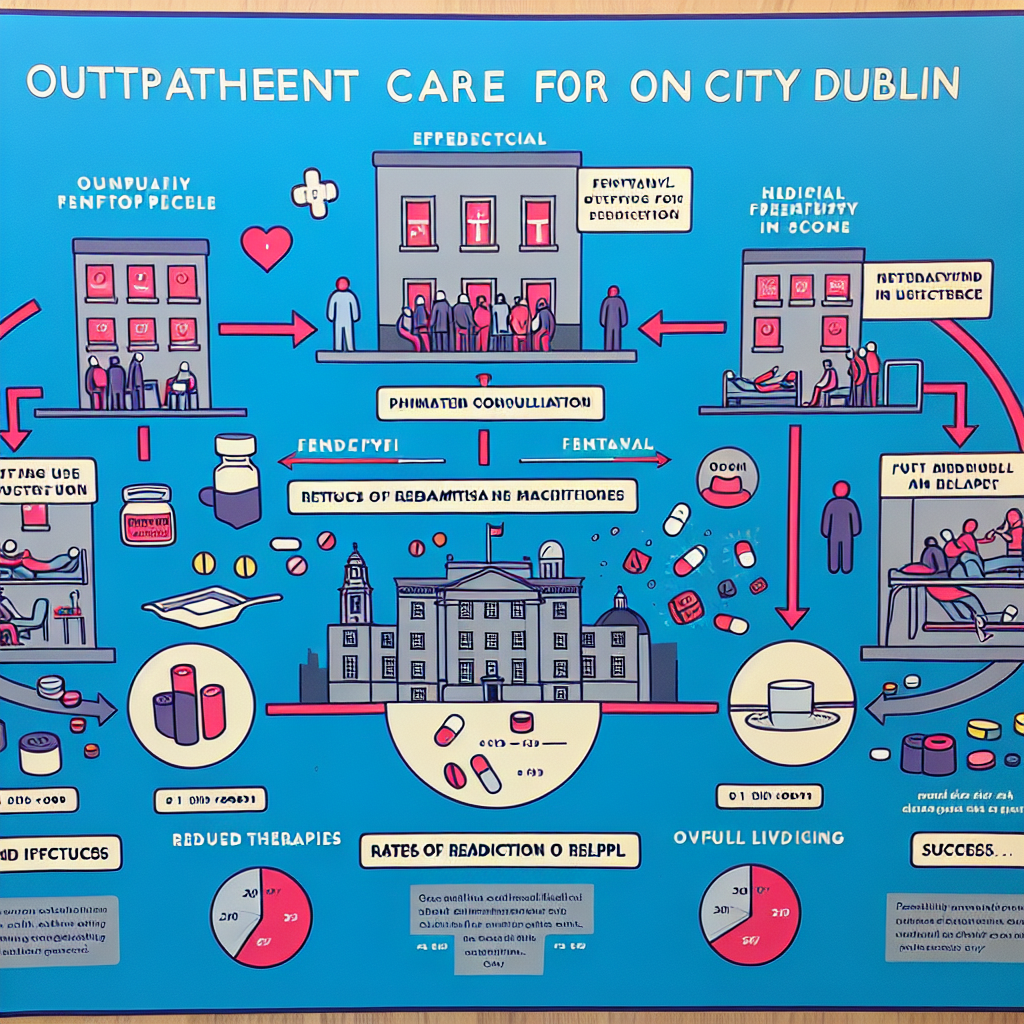-
Table of Contents
“Reclaim Your Future: Building a New Life Beyond Fentanyl”
Introduction

Building a new life after fentanyl addiction is a profound and challenging journey that requires immense courage, resilience, and support. Fentanyl, a potent synthetic opioid, has devastated countless lives, leading to severe physical, emotional, and social consequences. Recovery from such an addiction involves not only overcoming the intense physical dependency but also addressing the psychological and emotional scars left behind. It necessitates a comprehensive approach that includes medical treatment, psychological counseling, and a strong support network. Rebuilding one’s life post-addiction involves rediscovering personal goals, rebuilding relationships, and finding new, healthy ways to cope with life’s challenges. This transformative process is a testament to the human spirit’s capacity for renewal and the possibility of a hopeful, fulfilling future beyond addiction.
Overcoming Fentanyl Addiction: Steps to Rebuild Your Life
Overcoming fentanyl addiction is a monumental achievement, but it is only the beginning of a journey toward rebuilding a fulfilling and meaningful life. The path to recovery is often fraught with challenges, yet it is also filled with opportunities for growth, self-discovery, and renewal. The first step in this transformative process is acknowledging the courage it took to seek help and the strength required to overcome the grip of addiction. This acknowledgment serves as a foundation upon which to build a new life.
Transitioning from addiction to recovery involves more than just abstaining from substance use; it requires a holistic approach that addresses the physical, emotional, and psychological aspects of well-being. One of the most critical components of this journey is establishing a robust support system. Surrounding oneself with supportive friends, family, and professionals can provide the encouragement and accountability needed to stay on track. Support groups, such as Narcotics Anonymous, offer a sense of community and shared experience that can be incredibly empowering.
In addition to building a support network, it is essential to develop healthy coping mechanisms to manage stress and emotional triggers. Engaging in regular physical activity, practicing mindfulness and meditation, and pursuing hobbies and interests can all contribute to a more balanced and fulfilling life. These activities not only provide a positive outlet for emotions but also help to rebuild self-esteem and a sense of purpose.
Another crucial aspect of rebuilding life after fentanyl addiction is addressing any underlying mental health issues. Many individuals struggling with addiction also face co-occurring disorders such as depression, anxiety, or PTSD. Seeking professional help from therapists or counselors who specialize in addiction and mental health can provide the tools and strategies needed to navigate these challenges. Therapy can also help individuals process past traumas and develop healthier thought patterns and behaviors.
Education and employment are also vital components of a successful recovery journey. Pursuing educational opportunities, whether through formal schooling or vocational training, can open doors to new career paths and provide a sense of accomplishment. Gaining employment not only offers financial stability but also instills a sense of responsibility and routine. It is important to set realistic goals and celebrate small victories along the way, as these achievements can build momentum and confidence.
Reconnecting with loved ones and rebuilding relationships that may have been strained or damaged during addiction is another significant step in the recovery process. Open and honest communication, coupled with a willingness to make amends, can help to heal wounds and restore trust. It is important to remember that rebuilding relationships takes time and patience, and it is essential to approach this process with empathy and understanding.
Finally, giving back to the community can be a powerful way to reinforce recovery and find a sense of purpose. Volunteering, mentoring others who are struggling with addiction, or participating in community outreach programs can provide a sense of fulfillment and connection. Helping others not only strengthens one’s own recovery but also contributes to the well-being of the broader community.
In conclusion, rebuilding a life after fentanyl addiction is a multifaceted journey that requires dedication, resilience, and support. By focusing on physical health, mental well-being, education, employment, relationships, and community involvement, individuals can create a new, fulfilling life that is rich with possibilities. The road to recovery is not always easy, but with perseverance and a positive outlook, it is possible to overcome the shadows of addiction and embrace a brighter future.
Finding Support Systems After Fentanyl Recovery
Building a new life after fentanyl addiction is a journey that requires immense courage, resilience, and a strong support system. The path to recovery is often fraught with challenges, but finding the right support systems can make all the difference in maintaining sobriety and rebuilding a fulfilling life. As individuals emerge from the shadows of addiction, they must seek out and embrace various forms of support to ensure long-term success.
One of the first steps in finding support after fentanyl recovery is connecting with healthcare professionals who specialize in addiction treatment. These experts can provide ongoing medical care, counseling, and medication-assisted treatment if necessary. Regular check-ins with a healthcare provider can help monitor progress, address any emerging issues, and adjust treatment plans as needed. This professional guidance is crucial in navigating the complexities of post-addiction life and maintaining physical and mental health.
In addition to professional support, peer support groups play a vital role in the recovery process. Organizations such as Narcotics Anonymous (NA) offer a safe and non-judgmental space for individuals to share their experiences, challenges, and triumphs. These groups foster a sense of community and belonging, which is essential for those who may feel isolated or misunderstood. By connecting with others who have faced similar struggles, individuals can gain valuable insights, encouragement, and accountability. The shared experiences within these groups can be a powerful reminder that they are not alone in their journey.
Family and friends also form a critical component of a robust support system. Rebuilding relationships that may have been strained or damaged during addiction is a significant step towards recovery. Open and honest communication with loved ones can help mend these bonds and create a network of support that is both understanding and compassionate. It is important for individuals to express their needs and boundaries clearly, and for family members to educate themselves about addiction and recovery. This mutual understanding can foster a supportive environment that encourages growth and healing.
Moreover, engaging in healthy and fulfilling activities can provide a sense of purpose and direction. Pursuing hobbies, interests, or new skills can be incredibly therapeutic and can help fill the void that addiction once occupied. Whether it’s through art, sports, volunteering, or education, finding activities that bring joy and satisfaction can significantly enhance one’s quality of life. These positive outlets not only serve as a distraction from potential triggers but also contribute to building a new identity beyond addiction.
Another essential aspect of finding support is addressing the underlying issues that may have contributed to the addiction. Therapy, whether individual or group, can be instrumental in uncovering and working through these issues. Cognitive-behavioral therapy (CBT), for example, can help individuals develop healthier thought patterns and coping mechanisms. By addressing the root causes of addiction, individuals can better understand themselves and develop strategies to prevent relapse.
Finally, it is important to recognize that recovery is an ongoing process. There will be ups and downs, and setbacks are a natural part of the journey. However, with a strong support system in place, individuals can navigate these challenges with greater resilience and confidence. Celebrating small victories and milestones along the way can provide motivation and reinforce the progress made.
In conclusion, building a new life after fentanyl addiction is a multifaceted process that requires a comprehensive support system. By seeking professional help, connecting with peer support groups, rebuilding relationships with loved ones, engaging in fulfilling activities, and addressing underlying issues, individuals can create a solid foundation for a successful and meaningful recovery. The journey may be long and arduous, but with determination and the right support, a brighter future is within reach.
Healthy Habits for a Fresh Start Post-Fentanyl Addiction
Rebuilding a life after fentanyl addiction is a journey that requires immense courage, determination, and a commitment to adopting healthy habits. The path to recovery is not linear, but with the right strategies and support, it is possible to create a fulfilling and vibrant life. One of the first steps in this transformative process is to establish a routine that promotes physical and mental well-being. Regular exercise, for instance, can be a powerful tool in recovery. Engaging in physical activities such as walking, running, or yoga not only helps to rebuild physical strength but also releases endorphins, which are natural mood lifters. This can be particularly beneficial in combating the emotional lows that often accompany the early stages of recovery.
In addition to physical activity, nutrition plays a crucial role in the healing process. A balanced diet rich in fruits, vegetables, lean proteins, and whole grains can help restore the body’s natural balance and improve overall health. It is important to stay hydrated and avoid substances that can trigger cravings or relapse, such as caffeine and sugar. Cooking at home can also be a therapeutic activity, providing a sense of accomplishment and control over one’s diet.
Mental health is another critical aspect of recovery. Developing healthy coping mechanisms to deal with stress and emotional triggers is essential. Mindfulness practices such as meditation and deep-breathing exercises can help manage anxiety and promote a sense of calm. Additionally, engaging in creative activities like painting, writing, or playing music can provide an emotional outlet and a sense of purpose.
Building a support network is equally important. Surrounding oneself with positive influences, whether through support groups, therapy, or trusted friends and family, can provide the encouragement and accountability needed to stay on track. Sharing experiences and challenges with others who understand can be incredibly validating and empowering. It is also beneficial to seek professional help from counselors or therapists who specialize in addiction recovery. They can offer guidance and strategies tailored to individual needs.
Setting realistic goals is another key component of establishing healthy habits post-addiction. Breaking down larger objectives into manageable steps can make the process less overwhelming and more achievable. Celebrating small victories along the way can boost confidence and motivation. It is important to be patient and compassionate with oneself, recognizing that setbacks are a natural part of the recovery journey.
Furthermore, finding new passions and interests can help fill the void left by addiction. Exploring hobbies, volunteering, or pursuing educational opportunities can provide a sense of fulfillment and direction. Engaging in activities that align with personal values and interests can help build a new identity and a sense of purpose.
Lastly, maintaining a positive mindset is crucial. While the road to recovery is challenging, it is also an opportunity for growth and transformation. Embracing a mindset of gratitude and focusing on the progress made rather than the setbacks can foster resilience and hope. It is important to remember that recovery is a continuous process, and each day is a chance to make positive choices and build a healthier, happier life.
In conclusion, establishing healthy habits after fentanyl addiction involves a holistic approach that encompasses physical, mental, and emotional well-being. By incorporating regular exercise, balanced nutrition, mindfulness practices, a strong support network, realistic goal-setting, new interests, and a positive mindset, individuals can create a solid foundation for a fresh start. The journey may be challenging, but with determination and support, it is possible to build a new life filled with hope and possibility.
Career and Education Opportunities After Fentanyl Addiction
Rebuilding a life after overcoming fentanyl addiction is a journey filled with challenges and opportunities. One of the most significant aspects of this journey is finding new career and education opportunities that can provide a sense of purpose and stability. For many individuals, the path to recovery involves not only physical and emotional healing but also the pursuit of new goals and aspirations. This process can be daunting, but with the right support and resources, it is entirely possible to create a fulfilling and successful future.
Transitioning from addiction to a stable career often begins with education. Many people in recovery find that returning to school or pursuing vocational training can be a transformative experience. Education provides not only the skills and knowledge needed for a new career but also a sense of accomplishment and self-worth. Community colleges, trade schools, and online courses offer flexible options for those who may need to balance their studies with other responsibilities. Additionally, many institutions have support services specifically designed for individuals in recovery, including counseling, tutoring, and financial aid.
As individuals in recovery consider their career options, it is essential to explore fields that align with their interests and strengths. For some, this may mean returning to a previous profession with a renewed sense of purpose. For others, it may involve discovering a completely new passion. Careers in healthcare, social work, and counseling are often particularly appealing to those who have experienced addiction, as they provide an opportunity to give back and help others who are facing similar struggles. These fields also tend to have a high demand for workers, which can lead to job stability and growth opportunities.
Networking and building professional relationships are crucial steps in finding new career opportunities. Support groups and recovery communities can be valuable resources for making connections and finding mentors who understand the unique challenges of rebuilding a life after addiction. Many organizations and employers are increasingly recognizing the value of hiring individuals in recovery, as they often bring resilience, determination, and a unique perspective to the workplace. Job fairs, career counseling services, and online job boards can also be helpful tools in the job search process.
In addition to formal education and career training, developing soft skills is equally important. Communication, time management, and problem-solving abilities are essential in any professional setting. Volunteering, internships, and part-time work can provide practical experience and help build a strong resume. These opportunities also allow individuals to demonstrate their commitment and reliability to potential employers.
While the journey to a new career and educational opportunities after fentanyl addiction can be challenging, it is important to celebrate each milestone along the way. Small achievements, such as completing a course or securing an interview, are significant steps toward a brighter future. Maintaining a positive mindset and staying focused on long-term goals can help individuals stay motivated and resilient in the face of obstacles.
Ultimately, building a new life after fentanyl addiction is about more than just finding a job or earning a degree. It is about creating a sense of purpose, stability, and fulfillment. With determination, support, and the right resources, individuals in recovery can achieve their career and educational goals, paving the way for a successful and meaningful future. The journey may be challenging, but it is also an opportunity for growth, self-discovery, and transformation.
Q&A
1. **Question:** What are the first steps to take when building a new life after fentanyl addiction?
**Answer:** Seek professional treatment, establish a support network, create a structured daily routine, and set achievable goals.
2. **Question:** How can one maintain sobriety after overcoming fentanyl addiction?
**Answer:** Regularly attend support group meetings, engage in therapy, avoid triggers, and practice healthy coping mechanisms.
3. **Question:** What role does physical health play in recovery from fentanyl addiction?
**Answer:** Physical health is crucial; it involves regular exercise, a balanced diet, adequate sleep, and medical check-ups to repair and strengthen the body.
4. **Question:** How important is a support system in the recovery process from fentanyl addiction?
**Answer:** A strong support system is vital; it provides emotional support, accountability, and encouragement, significantly increasing the chances of sustained recovery.
Conclusion
Building a new life after fentanyl addiction requires a multifaceted approach that includes medical treatment, psychological support, and lifestyle changes. Medical treatment often involves detoxification and medication-assisted therapy to manage withdrawal symptoms and reduce cravings. Psychological support through counseling, therapy, and support groups is crucial for addressing the underlying issues that contributed to the addiction and for developing coping strategies. Lifestyle changes, such as adopting a healthy diet, regular exercise, and engaging in meaningful activities, help in rebuilding a sense of purpose and well-being. A strong support network of family, friends, and healthcare providers is essential for sustained recovery. Overall, recovery from fentanyl addiction is a challenging but achievable process that necessitates comprehensive and ongoing efforts to ensure long-term success and a fulfilling life.



